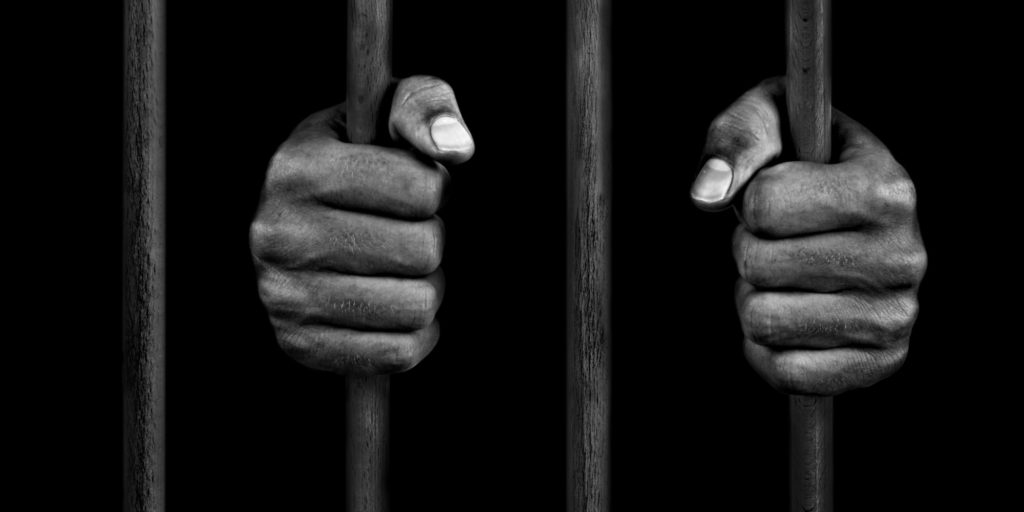On Thursday, the Speaker of the Alabama House of Representatives, Nathaniel Ledbetter, announced his support for legislation imposing further limitations on “good time” incentives for prisoners to get an early release. The legislation is sponsored by State Sen. April Weaver. It would limit and reduce inmates’ access to good time incentives.
“Every so often, a tragic event reveals a flaw that needs to be corrected, and the loss of Deputy Brad Johnson and the wounding of Deputy Chris Poole offers strong evidence that Alabama’s system of awarding good time credit is broken and needs to be repaired,” Ledbetter said
“Alabama is no place for serious crimes, and our prisons often reward dangerous criminals for bad behavior. I commend Senator April Weaver for introducing the Deputy Brad Johnson Act,” Ledbetter added. “I’m confident it will find a welcome reception in the Alabama House.”
“Good time, formerly known as “correctional incentive time,” was originally designed to encourage an inmate to behave while in custody, improve themselves in prison, and respect the orders and authority of correctional officers,” Weaver. “Ultimately, it was a tool to help improve the safety of our correctional officers who work in environments that are inherently dangerous and often unforgiving.”
Weaver continued, “In Alabama, the law allows inmates to have up to 75 days removed from their prison sentence for every 30 days served, meaning that prisoners can serve less than one-third of their sentence.”
Currently, Alabama law allows inmates sentenced to 15 or fewer years in prison to receive “good time” behavior incentives to reduce their time in prison. Murders, rapists, and child predators are prohibited from qualifying for good time already. Only about 9% of state inmates were eligible for these incentives, according to the Alabama Sentencing Commission.
The Legislature passed the Nick Risner Act last year to make people convicted of manslaughter ineligible for good time. That bill was named for Sheffield Police Officer Nick Risner, who was killed in a gun battle with a murder suspect who had previously been convicted of manslaughter in the death of his father but who had gotten out early due to good time.
Whether or not an inmate received good time has been left to the prison wardens. Due to several recent incidents, including the Johnson slaying, Gov. Kay Ivey has imposed new rules for giving inmates good time.
“Our actions today, very simply put, keep violent offenders off the street, incentivizes inmates who truly want to rehabilitate and better themselves, reinforces the concept that bad choices have consequences, and keeps our public safe,” Ivey said.
Not everyone supports further limiting good time.
The Alabama Appleseed Center for Law and Justice is campaigning against what they call “mass incarceration.”
Carla Crowder is the executive director of Alabama Appleseed.
Crowder told the Associated Press that Ivey’s executive order “essentially ends good time or makes it extremely difficult for anyone to earn it given the brutal conditions across the prison system.”
“This is absurd and reflects state leadership that is completely out of touch with the public safety crisis in Alabama prisons,” Crowder said. “t would be laughable, if it weren’t so sad and dangerous, that anyone believes harsher punishments will fix this crisis and make anyone safer.”
Alabama is one of the most violent states in the country. The vast majority of the people in the Alabama prisons are violent offenders and/or career repeat offenders. That said, the state has chronically underfunded the Alabama Department of Corrections.
Alabama’s prisons are overcrowded and, according to the U.S. Department of Justice (DOJ), are understaffed and the most violent in the country. The DOJ is suing the state, claiming that imprisonment in ADOC constitutes a cruel and unusual punishment under the Eighth Amendment of the Constitution. The state’s aged, overcrowded prison facilities, chronic underfunding, and inability to properly staff ADOC makes it possible that the federal courts could side with the DOJ. If that happens, a mass release of thousands of dangerous inmates is a real possibility.
Ledbetter was chosen as the new Speaker of the House in January’s organizational session of the Legislature. With the support of the Speaker of the House, it appears that this bill may be on the fast track toward passage. The 2023 Alabama Regular Legislative Session will begin on March 7.
To connect with the author of this story or to comment, email brandonmreporter@gmail.com.
Related
Share via:














